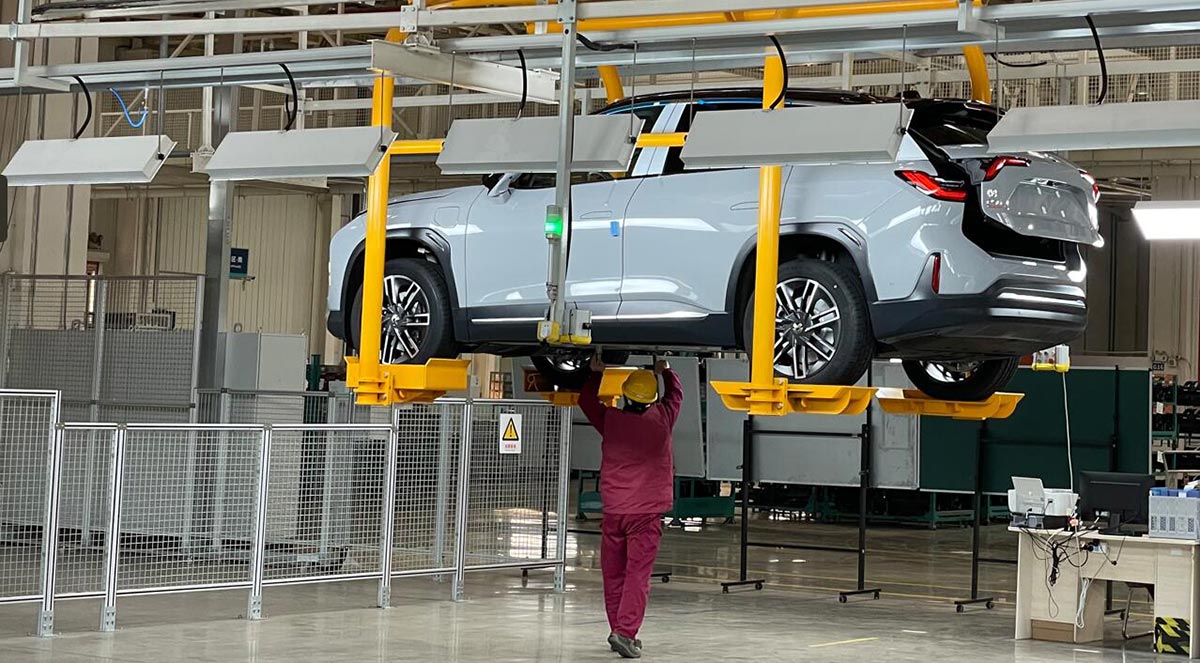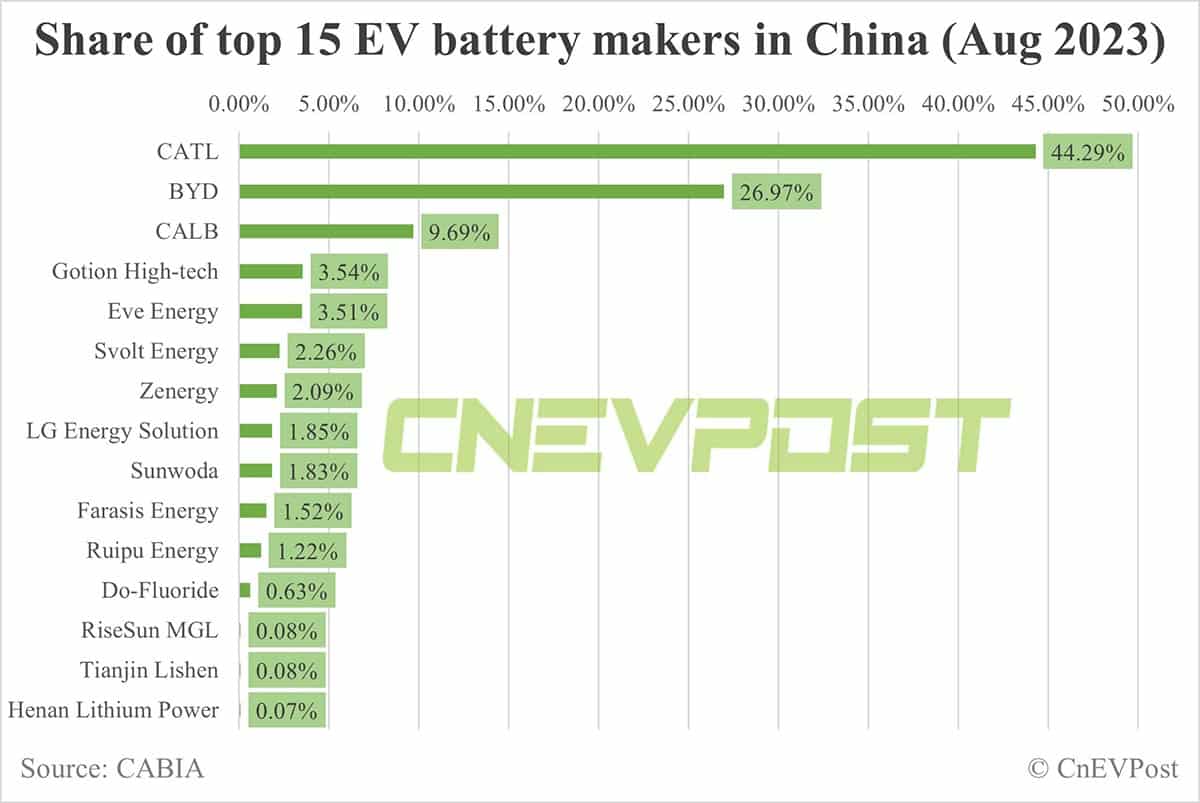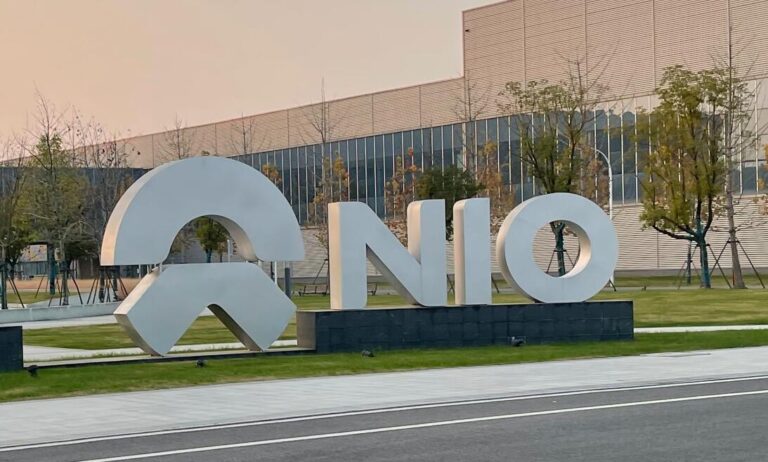Nio and Svolt Energy will jointly invest in a pilot production line in Anhui province, and some of their R&D staff will be merged, according to local media.
(Image credit: CnEVPost)
Nio (NYSE: NIO) is reportedly planning a partnership with a local battery maker to co-develop batteries, after it delayed efforts to develop its own.
Nio is preparing a joint venture with Svolt Energy, a battery maker spun off from Great Wall Motor, to co-develop large cylindrical batteries, 36kr said in a report today, citing several industry sources.
The initial plan is that Nio and Svolt Energy will jointly invest in a pilot production line in Maanshan, Anhui province, and a portion of the two's R&D staffs will be merged, but both sides will remain independent in terms of manufacturing and procurement, according to the report.
This is an exploration of a new partnership model, with the joint venture primarily just doing interim testing and development, the report said, citing a person who added that mass production of the batteries could be in 2025.
This partnership model is a last resort attempt by Nio after its efforts to develop batteries on its own hit a snag, the report noted.
On June 9, 2022, Nio founder, chairman, and CEO William Li confirmed in an earnings call that the company would develop its own batteries.
Nio has a battery team of more than 400 people to research areas including battery materials, cells, and battery management systems to fully establish battery system development and industrialization capabilities, he said at the time.
The company's new battery pack will go into production in 2024, and it will support 800 V high-voltage fast charging, according to Li.
On February 24, Reuters reported that Nio plans to build its first battery factory to produce large cylindrical batteries similar to those used by Tesla.
The new plant will be located next to its main manufacturing hub in Hefei, Anhui province in eastern China, and will have an annual battery capacity of 40 GWh, which could power about 400,000 long-range electric vehicles (EVs), the report said.
Cbea.com, which focuses on the battery industry, reported on February 27 that Nio held a battery partner forum in Hefei on February 24, where the company announced the start of construction of the first phase of its battery site.
Nio's battery team was boosted to 1,000 people, and it's working on its own lithium manganese-iron phosphate (LMFP) and 46-series ternary batteries, Cbea.com reported at the time.
However, with its deliveries weakening this year, Nio has delayed some big investments.
Nio will manage its cash flow carefully, with some fixed-asset investments postponed, Li said on a June 9 analyst call after the company announced its first-quarter earnings.
On July 12, 36kr reported that Nio had delayed plans for mass production of its in-house developed batteries and would move forward with the project on a new timeline.
Based on the latest plan, Nio has slowed down some equipment purchases for its battery factory, the July report said, citing several industry chain sources familiar with the matter.
"We have postponed the mass production of batteries based on business needs. The project is progressing normally according to the new mass production schedule," Nio told 36kr in July in response.
Prototype samples of Nio's large cylindrical batteries are still being built, and after partnering with Svolt Energy, it will import the prototype samples into the pilot line that the two build together for subsequent quality verification and development, according to 36kr's report today.
Large cylindrical batteries are a technological high ground that has yet to be conquered, and it's hardly going to be easy for either Nio or Svolt Energy, the report noted.
Partnering with a battery company with more mature technology and processes to ease the pressure of investment may be an option for Nio, the report said.
Nio's work with battery makers began last year, and it has approached almost all of the major battery makers, 36kr said, citing a person close to the electric vehicle maker's battery development business.
Svolt Energy was originally Great Wall Motor's battery division, which began power cell development in 2012.
It became independent from Great Wall Motor in February 2018 and works on next-generation battery materials, cells, modules, packs, BMS, and energy storage technologies.
The battery maker currently has 11 production sites in China and one overseas production site in Heusweiler, Saarland, Germany, according to its website.
Svolt Energy is one of the largest battery makers in China, with 0.79 GWh of batteries installed in August, ranking 6th in the country with a 2.26 percent share, according to China Automotive Battery Innovation Alliance (CABIA).
The battery maker announced the Dragon Armor Battery late last year, which it said can give vehicles a range of up to 1,000 kilometers.
Like BYD's Blade Battery and CATL's Qilin Battery, Svolt Energy's Dragon Armor is an innovation in the structure of the battery pack without involving battery chemistry.
Dragon Armor battery systems with lithium iron phosphate cells can achieve a range of more than 800 kilometers, while such batteries with ternary cells can have a range of more than 1,000 kilometers, Svolt Energy said at the time.


